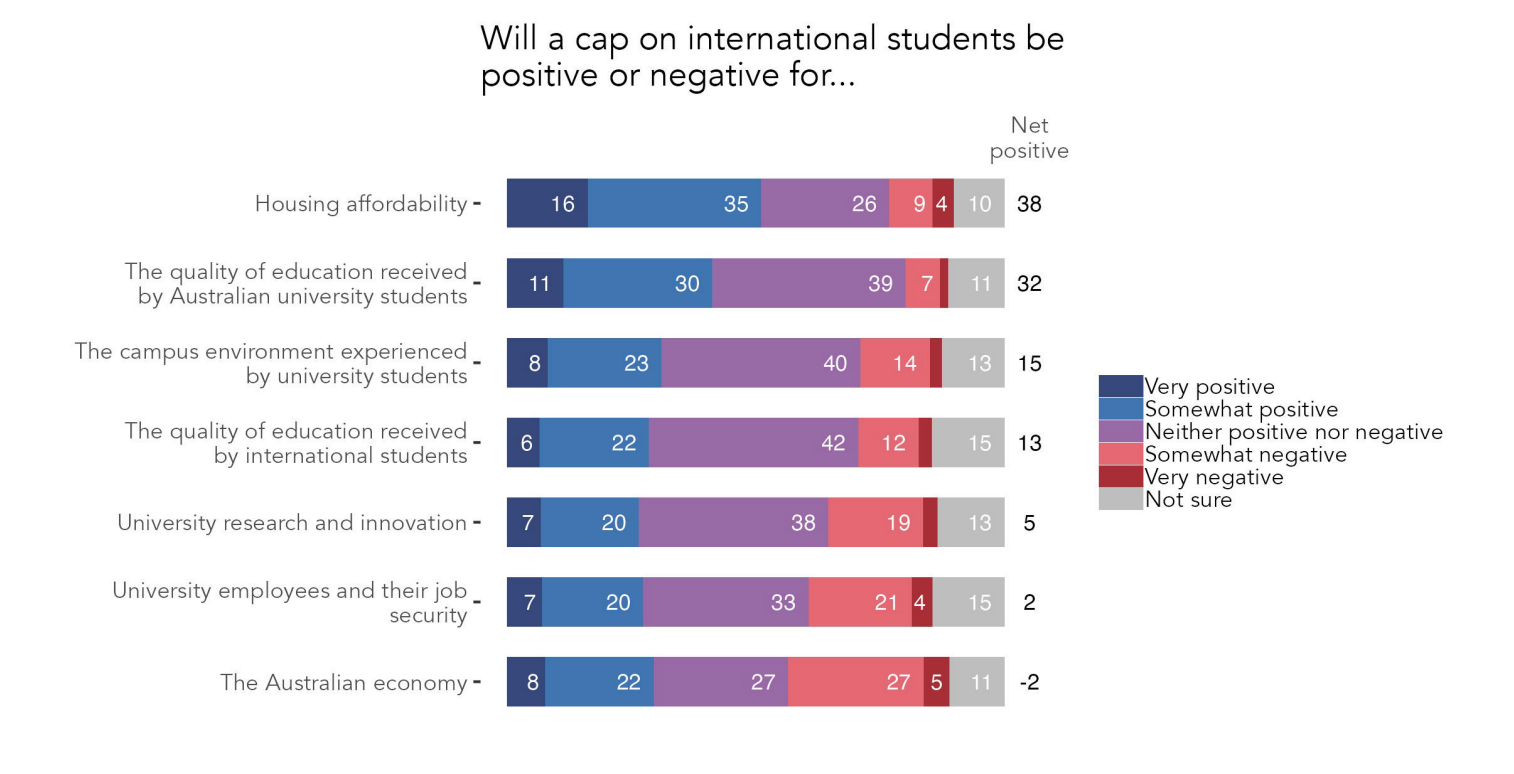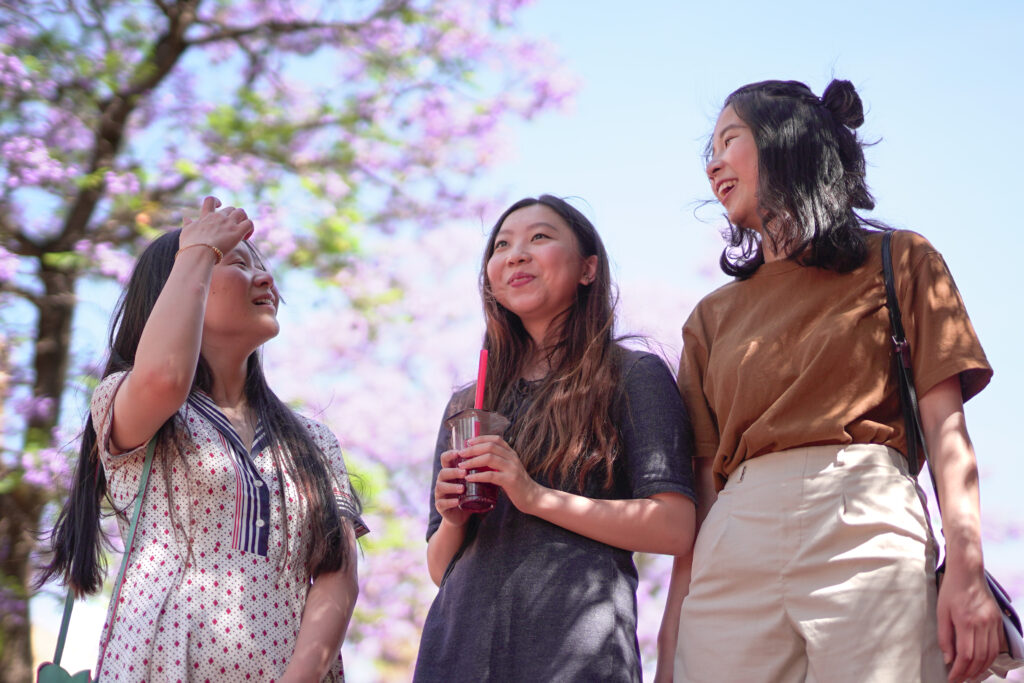Recent polling commissioned by Universities Australia reveals generally positive attitudes toward international students, with 61 per cent of Australians recognising their contributions to economic growth and 68 per cent agreeing they fill critical skills gaps. Additionally, 75 per cent believe that graduates who remain in Australia boost the workforce and economy.
The survey was conducted with 1,508 voters in battleground electorates—areas where election results are typically close and can swing either way. These electorates often have large international student populations, making them important for assessing public opinion on this issue.
However, these optimistic results come at a time when the government is moving forward with policies to cap international student numbers, leaving many questioning whether public sentiment is truly being reflected in policy decisions.
To delve deeper into these issues, Insider Guides spoke with Yeganeh Soltanpour, a recent international student graduate and advocate for international student rights. Yeganeh shared her thoughts on the polling results, how they align (or don’t) with her experiences, and the impact of ongoing policy changes on international students.
Interpreting the polling results
When asked if the polling results were what she expected, Yeganeh expressed mixed feelings. “I’m glad there is a positive sentiment, like 61 per cent of Australians believing international students have a positive impact,” she said. “But it’s a bit more nuanced. From conversations I’ve had, I realise that people might see us as part of the workforce, but not always as the qualified or educated workforce. Sometimes, they see us as doing the jobs no one else wants, like driving Ubers or working in hotels.” Yeganeh’s perspective highlights a deeper layer of scepticism about whether international students are fully valued for their skills and qualifications.
Despite her concerns, Yeganeh remains optimistic about the Australian public’s recognition of international students’ contributions, even as she cautions that data alone doesn’t capture the full picture. “I’m still happy to see the Australian public value international students and their contributions to the economy, but there’s more to the story than just the numbers.”
The impact of policy changes and student caps
While polling shows positive attitudes toward international students’ contributions to the economy and workforce, opinions on the government’s decision to cap international student numbers are more divided, as seen below:
 With details of the cap expected to be announced in the coming days, this policy has become one of the most contentious developments in the sector.
With details of the cap expected to be announced in the coming days, this policy has become one of the most contentious developments in the sector.
Yeganeh explained that throughout her years of studying, she has noticed recurring cycles where restrictive policies are introduced. For her and many others, this ongoing uncertainty has become a stressful, yet regular part of life as an international student in Australia.
Regarding the cap itself, Yeganeh noted that while she understands the need for regulation, she worries it may lead to universities turning away exceptional students simply due to fixed limits. “I fear that a cap might mean turning away potentially exceptional students who have worked hard to achieve high GPAs. Are we going to miss out on talented people because we’ve maxed out on the number we can accept?”
However, Yeganeh also sees a potential upside to the cap, even if it’s a small silver lining. “In a bad situation, the cap might force institutions to reconsider ‘cash cow’ courses that exist primarily to generate revenue rather than provide meaningful education and career pathways.”
She added that this shift could benefit students by encouraging more investment in quality programs that lead to tangible career outcomes, rather than courses designed primarily for profit.
Feeling truly welcomed in Australia: What’s still missing?
Yeganeh spoke about the importance of feeling genuinely welcomed in Australia, and one significant barrier is the hostile online discourse that international students often encounter. Platforms like TikTok are filled with toxic and xenophobic content targeting international students, which can be especially discouraging for those who haven’t even arrived yet.
“It’s become this environment where I look at the comments and think ‘All of these people look anonymous. This could be my neighbour, my friend, the person I’ve seen in a grocery store that I may think doesn’t absolutely despise me, but deep down, does,” she shares.
“It’s a fearful environment for students, some of who might not even be in Australia yet, and are seeing these things online. Comments like ‘don’t let the door hit you on the way out’ create a really negative impression.”
Yeganeh’s insights highlight the gap between positive polling data and the real experiences of international students. While polls show broad public support, the constant media debates about international students and their value, along with cycles of restrictive policies, can actually fuel these toxic online spaces.
However, she also reminds us that online negativity can be much louder than reality. She stressed the importance of managing the negativity that can come from being too “chronically online.” She recommends filtering out negative content and not letting one perspective dominate your mindset. “Remember that what you see online isn’t the full picture—it’s just one person’s view. Don’t be afraid to turn things off sometimes for your own mental health.”
How can I make my voice heard?
As an international student advocate, Yeganeh has valuable advice for those who want to get involved in advocacy. “The unions and councils can be great, but they’re often not sustainable because students often need to choose between volunteering and making money, and nowadays, that’s a matter of putting food on the table. I found that getting involved in social media was a big one for me, that’s where I actually started my advocacy.”
Yeganeh’s insights show that while the polling results are promising, there’s more to be done to ensure international students feel truly welcome. By getting involved and making your voice heard—whether through student organisations, advocacy groups or online platforms—you can help shape the policies and attitudes that affect your experience in Australia.





